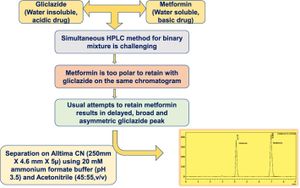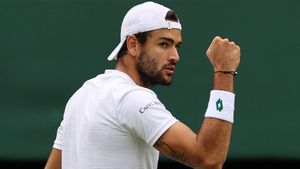On Wednesday, the Delhi Assembly elections unfolded, showcasing the rich democratic fabric of India as citizens were encouraged to exercise their voting rights. India TV Chairman and Editor-in-Chief Rajat Sharma was among those who participated, using his presence to urge more people to come out and vote. "I am happy to see people standing in long queues to cast their vote. It is my request to all to come forward to vote to strengthen democracy," Sharma stated, proudly displaying his inked finger to reporters outside the polling booth in Greater Kailash.
This year marked the competitive assembly elections for the 70 constituencies of Delhi, with 699 candidates vying for the attention of voters. Updating from the Election Commission revealed a voter turnout of 33.31 percent by 1 PM, with the North East district witnessing the highest engagement at 39.51 percent. The other districts showed varied percentages, proving the election day's unpredictability.
The stakes were high for major political players: the Aam Aadmi Party (AAP) aimed to retain its dominance, the Bharatiya Janata Party (BJP) was striving to reclaim power after nearly three decades, and Congress, which once ruled Delhi, was hopeful of recovering from their recent electoral woes.
Political rhetoric intensified as voting day approached. Prime Minister Narendra Modi launched sharp criticisms against AAP chief Arvind Kejriwal, drawing attention to the expenses associated with the Delhi Chief Minister’s residence. "Some people who came to power have installed jacuzzi and imported showers and built Sheesh Mahal with people’s money," Modi said. His remarks aimed to question the integrity of state leadership and divert attention toward poverty and corruption, citing his government’s initiatives to benefit the underprivileged, including housing and sanitation.
Modi's attack was not limited to any one figure but extended to the wider opposition narrative. He pointed fingers at Rahul Gandhi and the Nehru-Gandhi dynasty, leveraging socio-political sentiments to rally support. "Those who speak the language of urban Naxals, who declare war against the Indian State, can neither understand the Constitution nor about the country’s unity," he criticized, highlighting the division amid current discussions on caste and economic disparity.
While AAP hoped to consolidate its power based on its governance claims, the BJP seemed ready to capitalize on any weaknesses exposed by Modi's allegations. The elections also provided Congress, which had retreated from substantial wins over the last two electoral cycles, with another chance to connect with voters who felt let down by both the AAP and BJP.
Political analysts were attentive to how voter turnout, driven by Sharma’s call and Modi’s provocations, could affect the results. The enthusiasm visible at polling stations illustrated the desire for community involvement—as highlighted by Sharma's observations about long queues.
This year’s elections are not just about choosing representatives; they are framed within narratives of accountability, governance, and the future political direction of Delhi. The AAP is under pressure to prove its competence over the past term, the BJP to return as the ruling power, and Congress to emerge from its recent electoral drought.
The political discourse surrounding these elections resonates with the urgency of civic responsibility, ensuring every vote counts, and every voice matters. With multiple parties and their leaders engaged, these elections portray the continuous evolution of political strategies aimed at mobilizing public sentiment.
Delhi's political stage is set for what could be historic outcomes. Voter engagement is significant, not merely as numbers on the electoral rolls but as reflections of public trust and will against the backdrop of political maneuverings, ideological confrontations, and promises of change. Echoing Sharma's insistence on voter participation and Modi's pointed criticisms, it’s clear: how well these narratives resonate with the electorate could lead to transformative changes within the assembly's composition.
These elections are positioned to play a pivotal role not only for Delhi's governance but also for broader themes influencing the political climate across India as various factions seek to establish their stance and strengthen their base.



